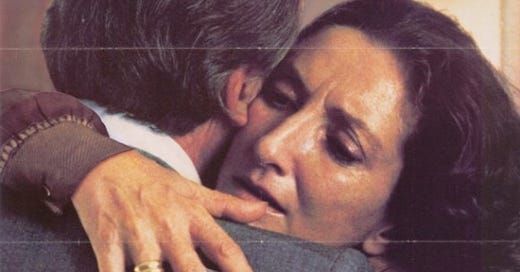I recently published a story centered around a victim of torture, a story that was inspired, in part, by a request I received from the Hay Festival who was collaborating with the International Center for Transitional Justice (ICTJ) in a project called “Re-escritura personal sobre el Informe de Comisión de la Verdad de Colombia.” The Hay Festival and the ICTJ invited a group of writers to read the Colombian Truth Commission Report and see if something within those archives could inspire a fictional narrative. I was already working on the story that would become The Ghosts of Gloria Lara but it wasn’t until I read the Truth Commission report in its entirety that I learned about the Gloria Lara case. And that was when my Argentinian days came rushing back to me.
1
I never started out wanting to be a Dominican writer, diasporic or otherwise. Truth is by the time I reached college, I wanted nothing to do with the Dominican Republic. Like, absolutely nothing. I spent my teenage years meticulously erasing my Dominicanidad, copying the habits, the speech, the dress, the movement of the American kids I grew up with (both black and white). I didn’t listen to Dominican music or do typical Dominican things (you would not have wanted me as your partner in dominos). I could not utter a full sentence of Spanish without committing multiple grammatical crimes -- quite an achievement considering that Spanish was my birth tongue -- knew next to zero about Dominican history or politics, couldn’t have pointed to my birth neighborhood on a map if the future of the world depended on it.
I was, in effect, a NoDomo.
Some of this was bog standard immigrant self-loathing – the taking up of the macro culture’s hatred against your community; the predictable wish to disassociate from that hatred, to dissolve into the dominant culture, to become what it approved of – in my case an American, Extra-White Variety.
Some of it was very specific to my circumstances: my deep desire to escape the suffocating craziness of my Dominican family, to sidestep the trauma that immigration had inflicted, to inhabit another self altogether, and never look back.
A lot of self-hating kids of color use the first years of college to de-whitefy themselves – to become supercolors (making up for the whiteness that came before). But those first years at Rutgers didn’t improve my NoDomo; they only seemed to deepen it. While my sister studied Spanish and Caribbean history and spoke Spanish super-aplatonao, I was studying the Vietnam Wars with Gardiner and Schafer and could barely say Yo Me Llamo without sounding like the worst voice-over you ever heard. My sister was cool with all the Dominican students and there were plenty of them even back then, but that’s not how I rolled. I hung with every other community -- Black, Korean, Japanese, Egyptian, white -– just not Dominicans.
And when I started writing stories for real they were all white as fuck: urban fantasies in the Matt Wagner vein or bizarre Stephen King pastiches. None of my characters had an accent or a tilde in their name. None of them knew a thing about the Trujillato or the US Invasion. None of them danced.
You'd have thought I would have had my white passport already, given how committed I was to the bechalking,
But alas for my Nominican dreams, the Dominican Republic was simply too a big a part of my reality to go down without a fight. My family too FOB, too plátano maduro, for such easy estrangements. My uncles and aunts and cousins and abuelos had Quisqueya coming out their fucking ears, seemed to think they were still living back home and since none of the older folks spoke a word of English I had to use Spanish, no matter how Yo Me Llamo it was, to be understood at home.
Didn’t help that my family had literally accompanied me to Rutgers; I had two siblings in school with me. Just too many people around who wouldn’t let me whitefy in peace. My sister made cracks. Her girlfriends made cracks. The brothers I hung out with made cracks. How often did Domos and other Caribos pull a double-take when they discovered that I was one of them.
You? they cried. Like I was some kind of traitor.
Which in a way I was.
Even my first creative writing professor, Professor S---- from South Africa, could never understand why I was writing what I was writing. She was of the write-what-you-know school and often wondered, after handing me back a story covered in red marks, why I wasn’t writing what I knew.
Why don’t you write about your Island?
Talk about a sign. When your white South African professors are telling you to decolonize you know you got problem.
I walked No Domo, I talked No Domo, I wrote No Domo, but at the deepest level something wasn’t taking, my Nominicanidad incomplete, unstable. When Sartres writes in his introduction to Wretched of the Earth that “the Condition of Native was a nervous condition” he didn’t know the half of it.
Case in point: at Rutgers I often dreamed vividly about childhood years in Santo Domingo. Dreams of Villa Juana, of Azua, of my beloved grandfather, of swinging a bat-stick in magnificent arcs from dawn to dusk. Dreams that often turned me inside out.
I guess the Dominican part that I was repressing wanted to be known, wanted acknowledgement.
What was it that Rushdie says in Shame, with a nod to Bellows?
“If you hold down one thing, you hold down the adjoining.
In the end, though, it all blows up in your face.”




